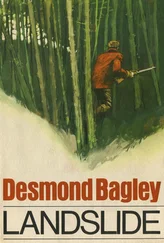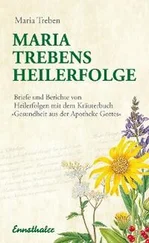When I went to take the animals to pasture, I would think about all these things. It was the task I liked best. I spent many hours alone with the animals and had time to lose myself thinking about the past and the present. The waving of poplar leaves took me away to my time in Ermita or the first days in my aunt and uncle’s house. I was enchanted by the sparrows and when I had to shout at Fosca or Clapada to guide them back onto the track, my mind was blank. These were the best parts of my day. When I returned with the animals flicking their tails against the flies, I felt comforted.
The day after Elvira told us that she was going to marry a boy who worked in forestry and go to live in Noguera, I thought, walking home, that they didn’t need me any more. It was a new idea, like a ray of sunlight filtering through the branches and blinding me.
Elvira hadn’t married yet but she would. And she’d do well. Angeleta would marry as well. She was quiet, hard-working and sweet. None of that would go unnoticed. Besides, she was pretty. And Mateu had Tia to show him what to do. She would be a mother to him. And at fifteen he would be a young heir. The moment the thought crossed my mind, I felt as if I’d been stabbed. Despite the pain, I repeated to myself: They don’t need me any more.
And I didn’t think of it again until the first night of the Festa Major . I heard the music of the party from my bed, faintly. Like a bird hearing a mating cry, I got up, put on my black dress and slowly, but deliberately, I went to the loft. Under the roof in a corner lay the wooden cradle where my three children had slept when they were small, and which their father had made with his own hands. It was simple, with just a zigzag pattern along the sides. I saw his tools in the open cupboard as well. But I didn’t stop there. I opened the window and put my head out. The noise of the river filled me completely, along with the smell of green and tender foliage. It was far down but I could hear it very clearly and it seemed much more welcoming than the hell of my bed. I dragged the cradle a little way and stood it on its end under the window. As I raised my right foot to get up on it, I heard a soft sound nearby. Tia was looking at me wide-eyed. She said to me: Is it that you can’t bear the noise, child? She put her right arm on my shoulder and like that, close to her body, small yet steady, I went down to my bedroom without a word.
My eldest daughter had been lucky. She already had a beautiful healthy son and instead of coming to beg food, we had to ask her to come up to help us in the summer. Angeleta couldn’t do it because she had married into farming people and had enough work at home. Only the heir needed to marry and even though he was young, Tia and I began to lose patience because he didn’t seem to put any effort into it. He was hard-working and skilful like his father. He’d grown up with a docile character, not the type to shout, still less give orders. He was kind-hearted and happy. He wasn’t bad to look at. Tall, a little too thin perhaps, he had curly chestnut hair and large peaceful eyes, a long nose and a delicate mouth.
But the time had come that young women thought long and hard before settling in a farming household. I asked the girls to see if they could find him someone in Noguera or in Torrent. I thought: You will lose him. But he needed a wife and to keep the house running with children. What was he going to do with two old women?
While all this was bubbling in my head, Tia died. One morning, surprised that she hadn’t already risen, I found her in bed like a shrunken sparrow. She went without giving us the least work. We didn’t even have to make her a tisane. Had it not been for Mateu, her death would have left me completely forsaken. Her small wrinkled face, toothless in recent years, and more than anything her voice had been my sweetest companions on many long nights. To remember her, as if I saw her from a distance, I had the photograph my son-in-law from Noguera took of her in secret, because she didn’t want her picture taken. Sitting in the meadow, with the cart full of grass opposite, she was turning to little Ramon who was listening to her nearby. She is wearing a black scarf low on her forehead and her face can’t be seen clearly.
Now that I was alone, the idea of getting Mateu married began to worry me. If something happened to me, my son would have to leave everything to take care of me. And who would look after him?
I felt no peace until the day he went to Torrent to stay with his sister and go calling on a potential bride. A girl there had been recommended to us. She was the youngest of four, boys and girls. All were married apart from her and the second son. Neither poor nor rich, they earned their living from animals, milking and hunting. The father was a chamois hunter. She was said to be well-versed in running a house and working the land, and she knew how to sew and do arithmetic.
I thought a lot that day, alone at home. Soon it would be milking time. Sitting beside the window I heard Clapada grumbling in the stable. But there was still light and I wanted to finish patching that sheet. A young woman would come into this house where she didn’t know a single room and become the mistress of it. I would give her the keys to all the doors so that those walls which had heard so many voices would shake with joy once again. Songs, children crying, the clatter of plates: all the rough and tumble of life that could bring colour to the shadows.
And this happy thought left me filled, inside, with sweet tears which I didn’t want to explain to myself. I couldn’t see what I was sewing. It had become dark. I had to go milk and little else. Not lay the table nor prepare the meal for the next day.
Remembering it now, I believe that night foretold the beginning of a new era of my life.
The day of the wedding I suffered a lot. We celebrated in Torrent. The girls were there, my two sons-in-law and the three grandchildren — Elvira’s Ramon and Rita and Angeleta’s Agustí. I was with people all day but I couldn’t keep my thoughts from escaping to Pallarès, to Jaume’s and my wedding day. I wanted to stop remembering but that only made my eyes fill with tears as if I was at a funeral. Perhaps that was why my daughter-in-law kept her distance from me, very shy, as if she was afraid to open her mouth to me.
Everything went well. A good dinner, jokes and laughter, and me trying to keep my feet on the ground. I couldn’t believe that these two women with little children and the man marrying that day were my own children. How time had flown! I had to be a middle-aged or even an old woman. I’d never thought about it until that moment. The years after the war were a fixed point, immobile, all the same. I had stopped moving the morning the soldiers had knocked on the door. Maybe I’d lost myself in the camp at Aragon. That’s why it now seemed strange to me that my children had grown up and I’d become old. A slow old woman who didn’t make a sound, carried her weight but who thought of herself as a bit of a halfwit. And who all of a sudden realized that at last death was on its way because she was over fifty and she didn’t want anything now or in the future.
But it’s not we who decide how long we live. We can’t say, I’ve had enough, I’m off now, or I’m happy now, I want to live longer. Of course I knew that, but I didn’t understand it yet.
It makes me laugh to think that now. It’s been my fate to live another thirty years and, although useless, I am still breathing.
The music hadn’t ended — no, there was another song still to come. Some good things: knowing that the grandchildren were growing, seeing them once a year, attending the birth of the others, thinking we needn’t lack anything if we worked, letting time numb bad memories… And on the other hand, the deepest silence. Learning that there is a type of person, people brought up strictly, who don’t know how to respect people who don’t order them around. I had to watch Mateu change, from quiet and happy to restless and surly. Marrying for convenience can turn out like that. You can get everything right except character. What happens when the potential bride and groom visit each other? Some time is spent in the dining room and dowries are discussed, the best sausage and a porró of wine are brought out. Then left alone, the couple say a few things to each other full of timidity and awkwardness.
Читать дальше












